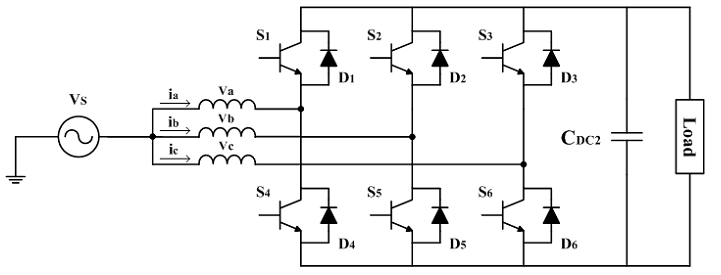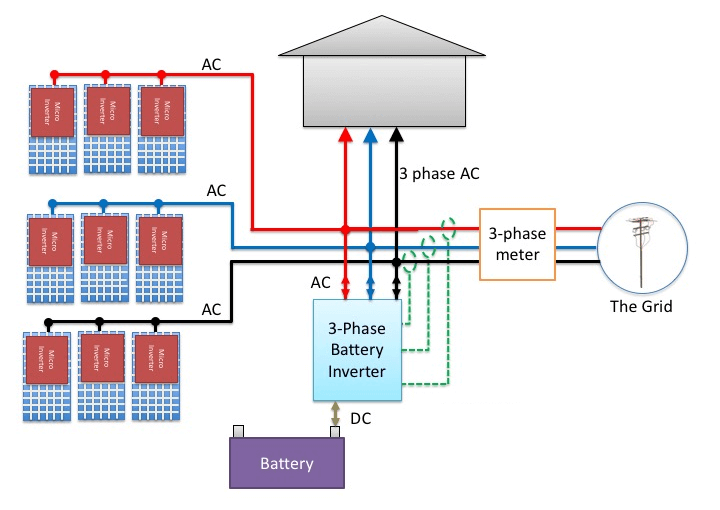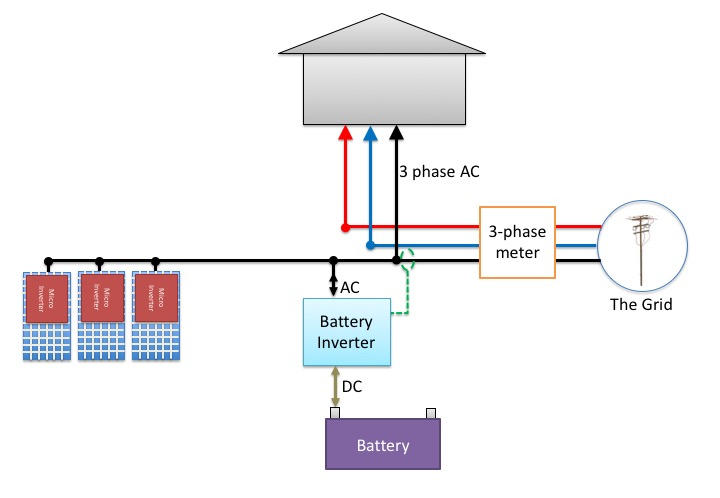In this modern era of the renewable systems, the elimination of excess energy has become essential especially with the deployment if three phase inverters for social scale set ups. If it’s a solar power system or it is a back up power systems, it is important to know how the three phase inverter battery works and where it is used. In this article, you will find all there is to know about three phase inverters and their batteries in efficient energy management.

What is a Three Phase Inverter?
The definition of a three phase inverter is that it is used for the conversion of direct current or voltage (DC) into an alternating current or voltage (AC) supply. It is meant for medium and large sized power supply systems designed to distribute stable power across three isolated phases of electrical circuits. This kind of inverter is popular in industrial settings and great households or commercial establishments which call for high power usage.
Unlike single-phase inverters, which provide power through one phase, three Phase inverters are more efficient in their distribution thus reducing energy wastages and enhancing operation of heavy duty machinery.

The Importance of Batteries in Three Phase Inverter Systems
In a three phase inverter system, the battery serves the major purpose of assisting in energy storage and also acts as a back up source in times of blackout or peak load periods. Batteries are quite useful in renewable energy systems such as solar modules as they allow storeanage of energy for future use.
Types of Batteries Used
- Lithium-ion Batteries: This is the battery that is since a large number of modern inverter systems come with these as standard. It is because the lithium-ion batteries are energy dense and relatively longer lasting while more efficent than many other options. Lithium-ion batteries can easily withstand tremendous discharges and accept tremendous recharges which is the demand of a three phase inverter.
- Lead-acid Batteries: These are an older technology but are still in use because they are cheaper. However, they are heavier and more inefficient than the lithium-ion batteries and also require increased maintenance.
- Nickel-Cadmium (Ni-Cd) Batteries: Reinforced with high temperature and temperature cycling tolerance, Ni-Cd Batteries are also used in industrial environments, although they are quite costly and harmful to the environment because of the Ni-Cd contents.

Some Advantages of Using a Three Phase Inverter Battery System
- Energy Efficiency: Three phase inverters offer a much better power distribution than a single phase allows in this one as the energy loss is minimal and system efficiency has improved tremendously. This is more of an advantage when compared to the ordinary batteries like lead acid since these types of lithium ion batteries can charge and discharge electrically with less energy loss.
- Stable Power Supply: Industrial machines and very large scale commercial operations do not operate without a source of power. Battery backup provides stability while power is insufficient because there are arrangements in place to ensure there is power to the crucial components all the time.
- Scalability: Because a three phase system can carry much higher loads it is suitable for commercial use. Within reasonable battery arrangement, the system can be quite easily enlarged to cater for increasing power requirements.
- Longer Lifespan: Regular usage of the modern three phase inverter systems with Li-Ion batteries comes with less backed with low maintenance thereby increasing the pay off over the period of ownership of the system.

Applications of Three Phase Inverter Battery Systems
- Industrial Power Solutions: Industrial power applications usually have high power consumption. All kinds of three phase inverter batteries are useful for uninterrupted functioning of machines even when there are power outages.
- Renewable Energy System: Large Solar panel installations especially require enhanced energy storage and management systems. This equipment is such three phase inverters with battery backup, as it is necessary when there is not enough sun or when it is cloudy.
- Large Commercial Buildings: Commercial buildings like shopping mall, office blocks and hotels incorporates, hence makes use of three phase inverter systems that provide appropriate capacity and efficient power management during peak power demand periods.
- Telecommunication Systems: Telecom towers (especially in remote locations or off-grid areas) are also equipped with three phase inverter battery systems to provide constant communication and data service.
Maintainence and Care Management
It is essential that three phase inverter batteries receive routine assessments in order to enhance performance. Some general tips for maintaining these systems include:
- Checking Connections: Check that all battery terminal fittings are tight and every other part is appropriate with no rubbing or that it has not been corroded.
- Battery Management System (BMS): The battery management system should be integrated into the system to help track battery conditions to avoid further charging or excessive drains which can shorten the battery lifespan considerably.
- Environment: A battery should be used in a temperature controlled area, as very hot or very cold temperatures may compromise performance and life.
Three phase inverter battery system plays a major role in controlling large suite power systems by being efficient, stable and scalable. Retailing and industrializing plant activities, running a commercial building, and installing renewable energy system all call for sourcing for an efficient battery solution investment which aids in constant and stable power supply.









